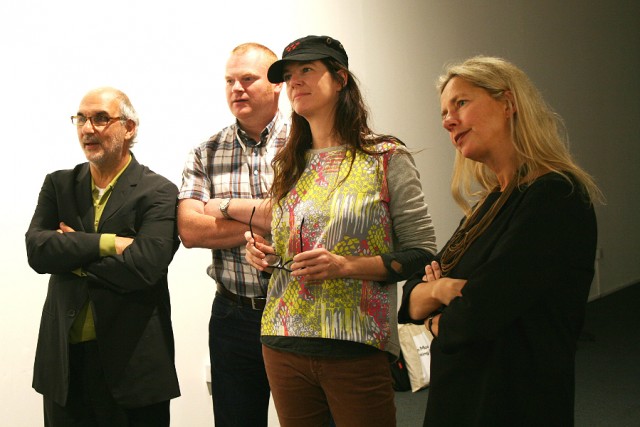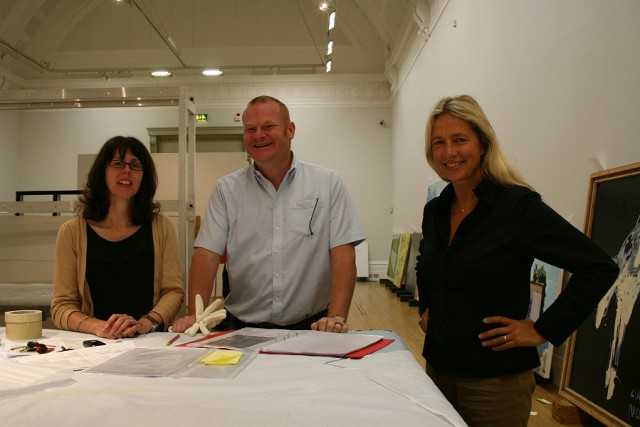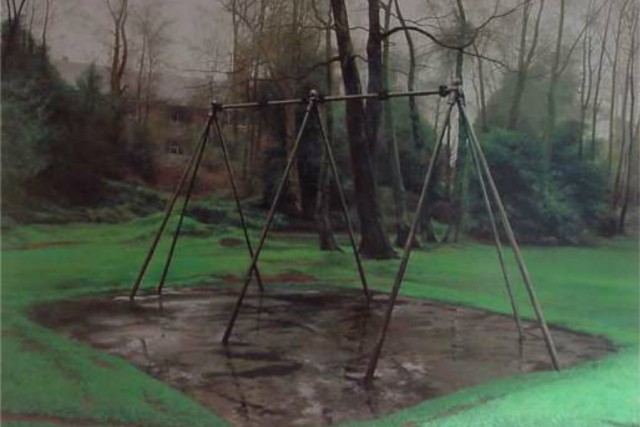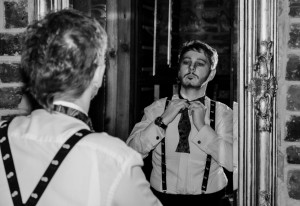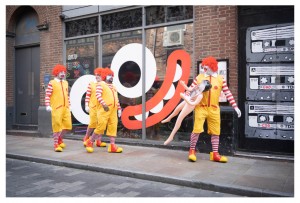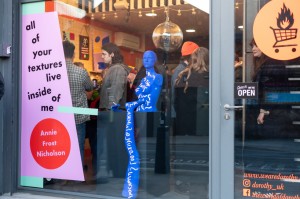The Big Interview: George Shaw
We met painter, Turner Prize 2011 nominee, and John Moores Painting Prize 2012 judge, George Shaw, to talk honestly about prizes, other artists and being misanthropic …
The Double Negative: Alongside judging the John Moores Painting Prize this year, you’ve just finished curating the exhibition too. Do you ever work with a curator?
George Shaw: It’s not the way it works [with my own shows]! I’d prefer, if I had the skills, to operate on myself and cut my own hair too, but I havent. I have to go to someone else. In an ideal world I’d prefer not to communite with anybody. I’d certainly prefer not to talk about art, I think thats one of the dullest things to talk about, as you’ll probably find out.
So why on earth did you agree to be a part of the JMPP?!
I recognise it’s not very healthy, so I do things that try to challenge my prejudices.
But thats a big part of being an artist isn’t it – collaborating with other people and talking about art, whether that’s taking part in group crits in your studio or working on a group exhibition.
Yes, you have to. I think if I was left alone, the work, my work and my own conversation would just circle around a very very small pole that you stake yourself to. The minute I have a conversation with someone … it just allows me to have a little bit more freedom. When we were selecting works for this, nearly every juror convinced me about something that I really loathed, that it was something that actually had a lot of merit. Now I could say, ‘I don’t like this’, and then [I'll change my mind and say], ‘ooh I actually quite like that’. I’m aware that … I’ve not got any respect for my own opinion really … I’m in a room full of people whose opinion I respect more than my own … there’s a measure of quality to be extracted from even the worst thing, that’s probably why I’m in favour of not hanging people.
Well, we hear that Alan Yentob actually referred a lot to your expertise during the judging process, and you were examining painting techniques very thoroughly.
Yeah, that was a little bit of me not wanting to talk too much … if I went up and looked at the painting, I didn’t have to sit on the settee. It was also more of a question of, ‘how have they done that?’, and I might be able to take away that information back to my own studio. You don’t often get to look at the back of other people’s paintings, so you could actually kind of feel how they were made. It was quite a privilege really. And I very rarely go to artists studios, so to see a painting not just hung in an exhibition, it was like seeing a bit of their studio.
Do you have your own studio at home?
Yes I do actually, so if I use a bit too much white spirit you can smell it in the kitchen. One of the privileges of getting money for paintings is that you dont have to share a studio. That was something I really used to hate. You’d have a little bit of fabric separating you off from another person, it was a bit like being in a toilet cubicle. If someone’s in the toilet cubicle next to you, it’s like, ‘ooh I think I’ll come back later, I can’t concentrate!’ (laughs) I think I’ve said too much.
With that in mind (ahem), what was it like working with the other judges (Creative Director of the BBC Alan Yentob; Director of the Whitechapel Gallery, Iwona Blaswick; and artists Fiona Banner and Angela de la Cruz)? Was it an experience you’d repeat?
Yeah, I would actually. I did think it would be quite painful and I was quite anxious about it, but it was better than I thought … it was just an opportunity to sit on the other side of the fence. So instead of being someone the finger’s pointed at all the time, you could be pointing the finger. I entered the JMPP prize once, and I’ve applied for things all the way through art school … you put yourself in the position of always being judged by somebody … using criteria that you don’t think you know anything about … so when you enter for an award and you don’t get it, your perception is always one on the receiving end. This was the first opportunity for me to kind of be someone who I didn’t think of myself being. I realised that I found the process quite fair – I didn’t find it overly judgemental, politically dark or anything, no hidden agenda – I found it quite straight forward.
Did you find that you empathised more with the artists because of this?
Yeah, yeah, everything was objective, everything just went to one side. The artist had made all this effort to bring the artwork along, photograph it … maybe one accurate state of contemporary painting would be to show all the applicants. But it wouldn’t be a very flattering portrait.
The JMPP means a lot to many people – some get really upset when their work isn’t chosen.
It’s a perception that the reason why it (the artwork) doesnt make it to the other side, it’s not the fault of your work, it’s the fault of the process. In the next year, with a different set of faces judging it, it could win £25,000 … who selects the judge and who selects the people who select the judge? If painting’s about anything, it’s about timing.
Is the JMPP still relevant in 2012?
Yes of course, there aren’t many prizes specifically for people who move coloured liquid around. Anybody who has been at any art school knows that no matter how it’s mediated, that very basic practice, that follows on the processs of drawing, is alive and well and always has been. It’s never been particularly out of fashion. It might be out of fashion to write about it or be in exhibitions. Art is as much linked to fashion as it is to politics.
The Guardian art critic Jonathan Jones said you “should have won the Turner” last year (Martin Boyce won instead) and that you didn’t “shows art is now judged by criteria that are pretentious and empty.” What criteria did you use to judge JMPP?
In the end … years of using pretentious criteria at art schools … the one thing it doesn’t value is the one tool which everyone uses, which is subjectivity. It’s completely underrated … just talking about something because you like it, because it chimes with you, or relates to your experience of the world and how you look at things … I don’t think there’s any other way.
John Moores set up this prize to draw media and public attention to the North. Is this still its purpose?
I’d like to think that these old conversations about the North/South divide are old hat, but they’re not. They seem truer now than they ever were. The Biennial opens at the same time, so it’s a punch in the face to those people who only think culture happens in certain places, and funding happens in certain places.
The John Moores Painting Prize is the UK’s biggest painting prize. The competition is entered anonymously and open to all UK-based artists working with paint
The five shortlisted prize winners and all 62 exhibiting artists for the JMPP 2012 have now been announced, check them out here
Exhibition open to the public from Saturday 15 September 2012

